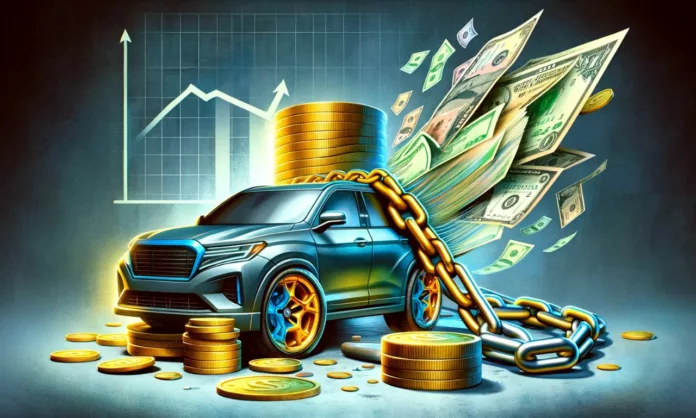Dive into the Hidden Financial Trap of Car Payments: A Revealing Look at How Auto Loans Drain Your Wallet! Discover the startling truths behind high-interest rates, the shackles of lengthy loan terms, and the swift devaluation of your new ride. This eye-opening article sheds light on how monthly car payments can choke your financial freedom, derail your savings goals, and block your path to wealth accumulation. Plus, uncover the alarming risks car payments pose during unexpected financial crises. Get equipped with crucial insights before you’re tied down by the chains of a long-term auto loan!
Making payments on a car is often considered a poor financial decision for several reasons:
- High Interest Rates and Long Loan Terms: The average new car loan is around $40,851 with monthly payments of approximately $725 at an interest rate of 6.58%. The typical loan term extends over 68 months, which is more than five and a half years. This long-term financial commitment means you’ll end up paying a significant amount in interest over the life of the loan, making the total cost of the car much higher than its sticker price.
- Depreciation of Vehicle Value: Cars depreciate quickly, losing about 20% of their value in the first year alone. This rapid depreciation means that the car’s value is constantly decreasing, while you continue to make the same monthly payments. The consequence is that you might end up owing more on the car than it’s actually worth, especially in the early years of the loan.
- Impact on Cash Flow and Savings: With the average new car payment exceeding $700 a month, this significant monthly expense can strain your budget, especially for those living paycheck to paycheck. This high monthly outlay restricts your ability to save for retirement, build an emergency fund, or pay down other debts, impacting your overall financial health and flexibility.
- Opportunity Cost: The money spent on car payments could be used for other financial opportunities, such as investing in assets that appreciate over time. By allocating a large portion of your income to car payments, you miss out on the potential growth your money could achieve through other investments.
- Financial Risk in Emergencies: Car payments can become a financial burden in the face of unexpected expenses. If a financial emergency arises, you may struggle to manage both your car payment and the new urgent financial need, leading to late payments or, in worst-case scenarios, defaulting on the loan. This situation can place undue stress on your financial well-being and limit your financial freedom.
In summary, car payments can be a poor financial decision due to the combination of high-interest rates, the rapid depreciation of vehicles, the impact on cash flow and savings, the opportunity cost of not investing the money elsewhere, and the financial risk posed in emergencies. These factors collectively can hinder wealth building and financial stability.
